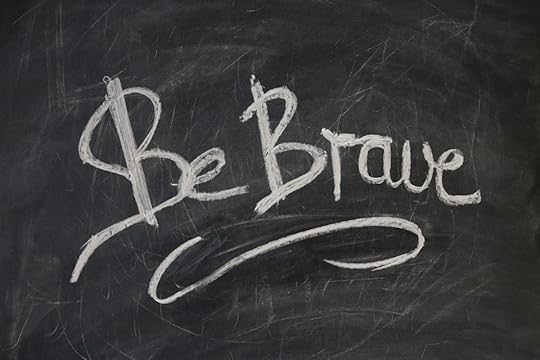Alan Watt's Blog, page 8
November 20, 2017
Narrative Drive
“The purpose of narrative is to present us with complexity and ambiguity.”
— Scott Turow
If you’re rewriting and a point in your story feels flat, here are some questions you can ask yourself:
1) What does my protagonist want?
2) What is my protagonist’s dilemma?
3) What is happening right now in my story that is urgent?
4) What will happen if my hero doesn’t get what he wants?
5) Why does this moment belong in my story?
6) Can I be more specific about what I am trying to say?
7) Does this scene belong somewhere else?
8) Can I distill what is essential in this scene and layer it into an existing scene?
9) Do I honestly understand what I am saying here, or do I just think it sounds good?
Sometimes the first draft can feel like those Olympic gymnasts running up to the pommel horse at top speed, and then balking and running off to the side. We may write passages where we are bounding toward some deep truth, hoping to hear an echo from the Almighty, but then our idea seems to evaporate into the mist. In the rewrite, we can ask ourselves if there is anything to salvage, and if not, we can happily press delete. These meanderings are necessary because often they bear fruit. In the rewrite, as we strip away what doesn’t belong, our story begins to reveal itself, as well as revealing what still needs to be said.
However, if there is something to salvage, but it still seems unclear, there are some things we can do.
Sometimes we need to step back and recognize that although we don’t quite yet understand what the story is about, there is something valid that wants to be expressed. Let’s inquire into the protagonist’s dilemma at this point in the story. The protagonist’s desire may not change through the story, however, his approach to getting what he wants is constantly shifting. Sometimes what appears to be going on is a smokescreen. Be curious about what is really going on in the scene.
For example: I’ll work with a writer who has had the story churning in his brain for years, and over time has developed some fixed ideas on what his story is about. But upon further inquiry he may discover that underneath the apparent conflict is an intractable inner struggle for the protagonist that drastically raises the stakes.
We must never assume that we know what is going on in our story. Our job in the rewrite is to hold our story loosely and remain curious. Allow a moment of conflict to help you understand the dilemma in a new or more specific way.
For example: I wrote a piece where the protagonist feels guilty because his wife has just died. She ran a red light. He learns early on that she knew about the affair he was having, and stricken with guilt he seeks forgiveness. But the only person who can offer him relief (he believes) is the one who has died.
His dilemma, it seems, is that the more he seeks forgiveness, the more he confronts its impossibility, thus leading to greater pain.
However, in another scene, he fights with his best friend, convincing him to make a meaningful film. They are fighting about their legacies, and what their lives will mean when they are gone.
And as I wrote it, I went back to my idea of the dilemma. I don’t ever try to force a scene into my idea of the dilemma, but rather inquire into how this scene relates to the dilemma.
What happens, if I hold it loosely, and don’t try to intellectualize it, is that I am invited to a more specific relationship to my theme.
Forgiveness and legacy—what do these two things have to do with one another? That was the question my subconscious was seeking to resolve. This question led me to wonder if perhaps forgiving oneself is in fact a necessary act in making a contribution to the world. And then, I wondered if perhaps we are already forgiven, and that the idea of needing forgiveness from someone else might actually be faulty—that true forgiveness can only come from ourselves. Hmm, interesting. All of this arises from inquiring into the connection between forgiveness and legacy.
The story lives fully and completely within us. The desire to write is the desire to resolve something that we seek to understand. By inquiring into the nature of the conflict we are connecting to an emotional throughline, as opposed to an intellectualized idea of the plot.
Again, it is by inquiring into those ineffable impulses that we are led to a deeper understanding of our story. Inquiring does not mean “figuring it out.” By exploring the relationship of two seemingly disparate elements, our subconscious is guiding us toward a more specific relationship to our story.
Trust the aliveness of your characters. Hold your story loosely, while continually making choices. Inquire into the nature of the impulses. And always remember that character suggests plot.
November 14, 2017
Ten Signs of a Good Writing Instructor
Choosing a writing instructor is a big decision. They are not all created equal. Here are some guidelines and suggestions that may help you in making your decision.
1) Qualifications: Does he have what you are seeking? One cannot teach what one does not possess. Has he accomplished himself in the area that you are seeking instruction? Don’t confuse a writing instructor with an English major. It’s one thing to quote Joyce, and another to identify with, support, and offer guidance to the daily struggle of the serious working writer.
2) Kindness: Honesty without kindness is cruelty. Of course we want our creative teachers to be straight with us, but if they cannot do it without positive reinforcement, they ought not to be teaching. Period.
3) Open-Minded: Watch out for gurus and authorities. This is common in creative instruction. Insecure teachers often overcompensate with an authoritarian tone. When our creative work is judged by someone who insists on having all the answers—RUN! Don’t walk to the exit! There are no answers. Any instructor who confuses principles with rules is a hack.
4) Setting a Tone: Is the class tone chaotic? Rigid? Are the other students supportive, encouraging, and friendly, or are they competitive and distancing? Part of the instructor’s job is to set the tone for the class. If the tone is not inclusive, it is difficult to do your best work. (Some MFA programs will disagree with this assessment, as if the writer must be tested and broken in order to triumph. Writing instruction need not be a Darwinian nightmare.)
5) Punctuality: When the instructor shows up late, it’s a bad sign. He does not respect himself, and he does not respect you.
6) Curiosity: There are many fundamentals to be learned, but there are no rules. If your instructor does not display a deep curiosity for what you are attempting to express, he is not serving your needs.
7) Respect: An instructor’s single most important job is to teach you to trust your instincts. Our stories live fully and completely within us. When a teacher treats you with basic respect, it has a powerful effect on allowing your creative self to emerge. When a teacher is rude or dismissive, it can block the creative channel. A teacher who encourages you to mimic the writing of another is disrespectful, and sadly all too common. Too many creative writing teachers want you to emulate the writer they most admire (usually themselves). Writing class is a place for you to find your own voice, not a breeding ground for sycophants.
8) Boundaries: If you choose to leave the class, the instructor does not bully or hound you to stay. She smiles, gives you a hug and says, “Keep writing. I’m here whenever you need me.”
9) Maturity: Your instructor is a grownup. He can take care of himself. In creative workshops the developing artist is going to run the gamut of emotions. It can be scary and even messy at times. The instructor is there to guide, nurture, encourage, support and cheerlead. Not the other way around! It is in the job description that the instructor does everything he or she can do to help the writer to find his voice.
Because when we truly find our voice, an instructor is someone who can . . .
10) Say Goodbye: A good instructor’s job is to make himself obsolete. You are not supposed to stay in class forever. You are supposed to find your voice and share it with the world—and if you so choose, to guide and mentor those that come after you.
A writing instructor is just that, one who instructs. She claims credit for nothing. Your work is your own. It belongs to you. Her only job is help you to become most fully the artist you were meant to be. Good luck with your search.
November 8, 2017
Writing Tip: Ignore Conventional Wisdom

Many of you 90-day novelists are writing your first novel. If you’re not at least a little scared, you’re probably nuts. Every writing project involves surrendering what we thought we knew. It’s a humbling process.
The thing about writing our first novel is that we don’t know much. We haven’t walked this path before. Neither had Norman Mailer when he wrote The Naked and the Dead, or Harper Lee when she wrote To Kill a Mockingbird.
There is something very powerful about not knowing. When you don’t know, you are not privy to conventional wisdom. That’s a good thing.
“Conventional Wisdom” will tell you that writing your first novel is nearly impossible, and it will give you a hundred reasons why you ought not try.
But there is something more powerful than CW. The desire to write is the desire to evolve. Evolution trumps CW every time.
Go ahead. Write your first novel. Ignore the brilliant naysayers. They’ve been wrong before.
Write your first novel. The time is now.
Please share your thoughts on this.
November 6, 2017
The Dilemma at the Heart of Your Story

“Nothing is more desirable than to be released from an affliction, but nothing is more frightening than to be divested of a crutch.”
-James Baldwin
OK. We want to write something. We have something to say, but we don’t know exactly what it is. It’s just a feeling, or maybe it’s an idea, but it’s alive in us. It won’t go away. Sometimes it’s this thing that’s been knocking around in our head for years, decades even.
To write it down would make it real. What if we don’t get it right? What if it isn’t so damn special? What if it was just a stupid idea to begin with? What would that mean about ourselves? About our existence? The risk is too great.
So we just live with it, like an itch we can’t scratch.
But it doesn’t go away. The thought is, “what if?” What if it is a good idea? What if I wrote this thing and it turned out to be amazing? What if it was what everyone had been waiting for? What if I do have something to say?
Then I’d have to do it again. And what if I failed? What if I only have one in me?
Ahhhhhhh. It never ends. Our mind tortures us. Our ego wants to keep us in the same spot.
But here’s the lie that we tell ourselves. We tell ourselves that we have to solve this riddle before we can begin writing.
We don’t. We just have to acknowledge that this struggle lives within us. I work with writers every day, and the one thing that separates working writers from the ones who are still struggling with resistance is that the latter interpret their fear as evidence that they are not uniquely qualified to tell their story. It doesn’t matter that this is not true. It feels true. And further inquiry feels too uncomfortable to pursue.
What if you got excited about your fears, rather than withdrawing? What if you let them turn you on? What if you threw your ego on the fire and said, “I’m going to write this thing for me, and even if I never show it to anyone, I am going to conquer it once and for all”?
One simple paradigm shift can literally change our life. And here it is: what if we recognized the situation for what it really is—a dilemma.
So many would-be writers spend their lives waiting for their problems to be solved, only to discover that there isn’t one. There’s a dilemma. A dilemma is a problem that cannot be solved without creating another problem. Notice how this mirrors the protagonist in the story you’re writing. If you disagree, keep inquiring, because I promise you this is true in every single story ever written, from Dr. Seuss to Camus.
Problems are solved. Dilemmas are resolved through a shift in perception.
The purpose of story is to help us see things in a new way, through a shift in perception. When we begin to recognize that at the heart of every story is a dilemma, we become emotionally engaged with our characters. Focusing on the plot was actually pulling us away from what our story was about. When we inquire into the nature of the dilemma, our story starts to wake up. We become less concerned with the result and more interested in the process.
The dilemma is the source of our story. Its manifestations are endless. The dilemma takes us out of our limited ideas of who these characters are, and into a world that is messy and dangerous. The dilemma shakes up our fixed ideas on how the plot should go. The dilemma takes us to the heart of the tension in our story. Our characters aren’t “good” or “bad,” they aren’t “right” or “wrong.” They are all simply struggling with various aspects of the same dilemma.
The reader, or the viewer, is always unconsciously wondering what is going to happen next. How are these people going to resolve this seemingly impossible situation? As writers, by understanding that it is not our job to solve our hero’s problem (it’s unsolvable!) but rather, to inquire into the resolution of the dilemma, our story becomes instantly dynamic. Our focus shifts, and we begin to see the story in a whole new way.
Here are some examples of dilemmas.
* I want intimacy, but can’t tell you my secrets.
* I want my abuser to love me.
* I want success, but I can’t risk failure.
Let go of the idea that your hero has a difficult problem. Your hero only thinks he has a problem. He doesn’t! He has a dilemma. He may not know it. It’s likely unconscious to him, at least for (probably) the first two-thirds of the story, but gradually it becomes apparent. As it dawns on him that he is confronting a dilemma, he surrenders the possibility of ever getting what he wants. Why? Because human beings only surrender when they have exhausted all their choices.
It is the paradox of life that in surrendering our desire we become instantly powerful. We have nothing left to lose.
Our hero is reborn, and is able to take action toward giving himself what he needs.
He makes a new choice, proving to the gods that he has earned his “shift in perception.” And through this choice, the dilemma is resolved, and our hero is returned home.
Be curious about the dilemma at the heart of your story. Don’t try and “figure it out.” It’s not a math problem. Inquire into its myriad manifestations and it will reveal to you the plot that has been eluding you.
Please share with me your thoughts on this.
November 1, 2017
Writers, The Time is Now

I know writers who have struggled for decades to complete their first novel. They work on their novel for a while, then get distracted, put it in a drawer, fish it out a few years later, work on it for a while, and this goes on indefinitely.
I began teaching the 90-Day Novel workshop because some of my students had been in class for years and were not completing their first drafts. My goal as a writing teacher is to guide the writer to develop a process so that I become obsolete.
The secret for all first-time novelists to remember is to write the first draft quickly—even if you don’t know what you’re doing! Just get to the end of your first novel. It’s only by getting to the end that you will begin to really understand what you’re trying to say.
The first draft doesn’t have to make sense. There will be narrative holes, inconsistencies, contradictions. Don’t get too hung up on these.
Something remarkable happens when you get to the end of the first draft. You tend to understand your story in a way you couldn’t have in any other way.
Story is alchemy. It’s only by applying the pressure of a deadline that our subconscious is activated and we find the aliveness in our novel. Every novelist’s goal is to create something that is bigger than he is. In practical terms, this is impossible. But that doesn’t prevent a first-time novelist from believing that through decades of bashing away, somehow he’ll be able to “figure the novel out.” Even when we’re done, on some level, our novel is a mystery.
The solution is to write the first draft of our novel quickly, and surrender the results to the muse.
Let me know your thoughts.
October 30, 2017
Character Suggests Plot

“The beginning of a plot is the prompting of desire.”
– Christopher Lehmann-Haupt
Our idea of our screenplay or novel is never the whole story. As we inquire into the world we often discover that we must shed our idea of it for a wider perspective.
Have you ever watched a movie or read a book that wandered, and found yourself asking, “What’s it about?”
When the writer places his focus squarely on the plot while ignoring the characters, the theme gets blurry. It is character that suggests plot. It is only by trusting our instincts and allowing our characters to surprise us that we are led to a satisfying plot.
We must not confuse our instincts with our ideas. Our instincts will lead us to a deeper truth, while our ideas will ultimately betray our characters by squeezing them into a box.
Please share your thoughts on this.
October 24, 2017
3 Secrets for Getting Started On Writing Your First Novel

Every writer struggles with getting the story from imagination to the page. The first-time novelist confronts the special challenge of having never done this before.
Here are three quick tips to help all you first-time novelists in getting started.
1) Start now.
Were you expecting something profound? Try this: you know more than you think you know. In fact, you’re uniquely qualified to write your novel. I know you think that you need to do more research, that you need to get an MFA, that you need to improve your grammar, comma use, and vocabulary.
You don’t.
You’re ready right now to write your first novel. Start writing today. In fact, here’s a quick writing exercise so that you can start this second, before you even finish reading this blog: Write a 5-minute stream-of-consciousness dialogue between two characters in your novel. Do it now.
If you did it, you discovered something, didn’t you? And now you’re five minutes closer to becoming a first-time novelist.
2) Let go of the result.
If you’re going to be a novelist, you must surrender your image of what will become of your book.
It’s only when we make the story more important than our hopes and dreams, that we achieve our hopes and dreams. To your ego, that may be bad news, but it isn’t. Just as in story — if all that happens to our hero is that he gets what he wants, our reader will be disappointed. Same with us. The purpose of writing our story was not to become rich and famous, but to discover who we were meant to be. Rich and famous may be the result, but it was never the point.
3) Be willing to write poorly.
Every first-time novelist knows that in order to get to the end of her novel, she must be willing to write poorly. The structure may be weak, the dialogue cliché at times, the sentences running-on endlessly as we search for what we’re attempting to express. But somewhere within this morass is a diamond. It’s only after getting that first draft down that we begin to craft these words into something that is bigger than we are.
Go write your novel.
October 23, 2017
Act One: Maintaining Tension

“A writer writes not because he is educated but because he is driven by the need to communicate. Behind the need to communicate is the need to share. Behind the need to share is the need to be understood.”
– Leo Rosten
If Act One is feeling thin, or the conflict is weak, it might help to remember that your idea of the story is not the whole story. A series of events need to happen to inform your hero’s decision at the end of the first act. The stakes are rising. What are the situations that conspire to lead to this moment that your hero makes a decision?
Writing involves about putting our characters in jeopardy and keeping them there. You may notice that there is an inner debate going on for your hero. He is struggling with a question and this struggle will result in a decision at the end of Act One.
The struggle might be between the desire to belong and the desire to be true to oneself; or the desire to succeed might be at war with the desire to take a shortcut. The struggle is universal, something everyone can relate to, and the first act ends with the hero making a decision toward achieving his goal. Notice that there is a reluctance that precedes this decision. The reluctance keeps us connected to the tension between his goal and what he may stand to lose or is saying goodbye to through this decision. Remember that every decision, no matter how positive, involves loss. We are creatures of habit, thus never comfortable with change.
Please share your thoughts on this.
October 18, 2017
First-Time Novelists: Dealing with Fear

Many first-time novelists share a similar fear: “What will people think?”
It looks slightly different for each writer. What will my parents think when they find out I have these thoughts? What will my friends think when they discover I’m not always as caring as they might have believed? What will my children think when they find out I had sex before I got married?
Becoming a first-time novelist is like diving into cold water. It’s a shock, but you adjust. In fact, this is true of anything worth doing in life. Become a first-time novelist, or don’t.
The choice isn’t really about writing . . . becoming a novelist is about choosing to live your life.
Please share your thoughts on this.
October 16, 2017
Writing Act Three: Our Hero Accepts the Reality of His Situation

It can be frightening and exhilarating to realize that our story is bigger than we are, that in fact, it does not “belong” to us, that we are simply a channel.
In Act Three of our story, our hero comes to a point where he accepts the reality of his situation. Every writer struggles with the third act. If you find yourself panicking and thinking, “I don’t have an ending!” — relax, and trust that everything you need to know is within you.
It can be frightening to ask, “What if?” But asking “what if” is the stuff of great movies and books. Asking “what if” is the stuff of Act Three. Act Three is about surrendering the old story. What if we allowed our idea of our story to collapse? What if we accepted that we just didn’t know? Wouldn’t we be exactly where our hero is? And how would that alter our perception? Well, hasn’t the hero spent the entire story pursuing his “idea” of how he thinks things should go? And how has that been working? It hasn’t.
Act Three is where a paradigm shift occurs. It happens as the result of our hero surrendering his old identity. The challenge is that we must trust our hero’s transformation, even if we don’t know how it is going to happen. Sounds sort of like life, doesn’t it? We must bypass all of our conditioning, all of our cynicism, all of our ambition, and trust in that childlike place, that place where we are naturally moved by the truth of our story.
This is not weak sentimentality. But I am talking about love, the basic truth of the universe that lies at heart of our story despite the tone, despite the genre, despite whether it is a happy ending or a tragedy. The fundamental nature of love dwells at the heart of every story. It is the thing that is always on the table.
As we inquire more deeply, images may appear that begin to reveal an ending. We will know the ending is right because it rings like a bell. We have found some kind of order in the chaos. Our hero has been returned home.
Please share your thoughts on this.





